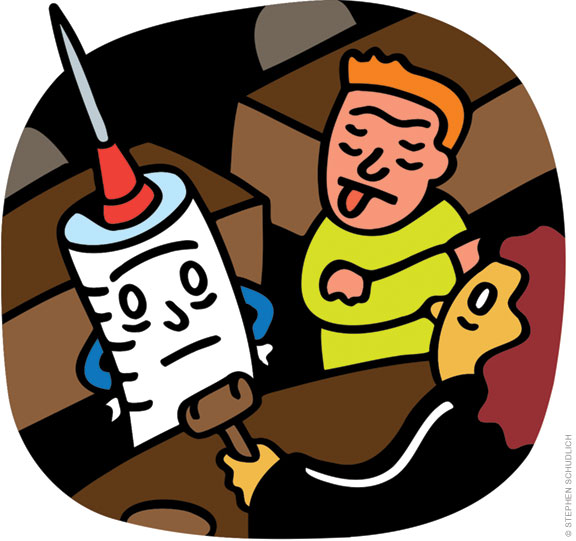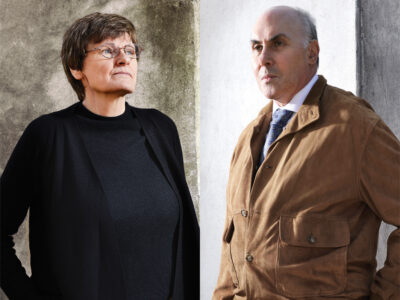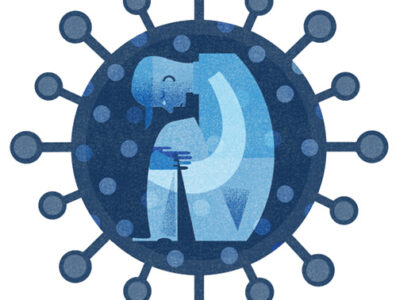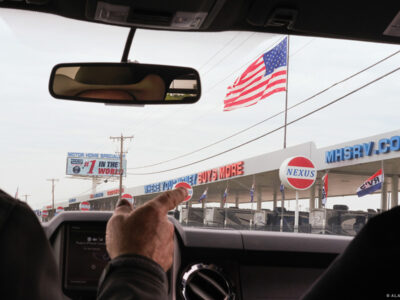
The case for mandatory vaccinations is “settled law.”
“You have now a solid 25 to 30 percent of this country who are saying ‘No thanks’ to the vaccine: ‘We’re OK with continuing to be fertile ground for this virus to reproduce itself, to create variants which may become progressively more resistant to vaccine-induced immunity,’” said renowned virologist and immunologist Paul Offit. “So what are you going to do about it? I think that’s where the rubber is going to meet the road over the next six months or so.”
Offit—who directs the Vaccine Education Center at the Children’s Hospital of Philadelphia and is the Maurice R. Hilleman Chair of Vaccinology at the Perelman School of Medicine—was speaking in a panel discussion sponsored by Perry World House at the end of August, days before President Biden announced a series of executive actions mandating vaccines against COVID-19.
Later in the “COVID-19 and the New Normal?” panel, a recording of which is available at Perry World House’s YouTube page, Offit sketched the historical legal case for vaccine mandates—and recalled one instance of compulsory vaccinations in the US, right here in Philadelphia. Here’s an edited excerpt of those remarks:
This is, I would argue, settled law. The Jacobson v. Massachusetts case in 1905 was the case of a Lutheran minister, Henning Jacobson, who was living in Cambridge, Massachusetts,
during a smallpox epidemic. The Cambridge Board of Health said that he had to either get a vaccine or pay a fine, because that’s what a mandate is. A mandate is when you’re asked to get a vaccine or pay some sort of societal price, whether it’s an actual fine, or you don’t get to work at the hospital, or go to the school, or whatever. That’s a mandatory vaccine.
Jacobson v. Massachusetts went all the way to the state Supreme Court, then the US Supreme Court, which supported the Cambridge Board of Public Health’s capacity to mandate the vaccine. Seventeen years later, in Zucht v. King, there was a girl who wanted to go to a high school that insisted on her getting a smallpox vaccine [that she didn’t want to get]. There wasn’t a smallpox epidemic at the time, but that case just again reaffirmed the earlier ruling.
The only instance [in American history] of compulsory vaccination took place in Philadelphia in 1991. In the city of Philadelphia, over a few months in 1991 there were 1,400 cases of measles and nine deaths. To put that in perspective, a couple years before, there had been 1,500 cases of measles in the country, and fewer than five deaths. But that’s how bad it was. It centered on two fundamentalist churches in the city—Faith Tabernacle and First Century Gospel. They were faith-healing churches, so they didn’t believe in vaccination. What happened was we got to the point where 500 of the cases and six of the deaths were in that community, and 900 of the cases and three of the deaths were in the surrounding community—because the virus doesn’t recognize your religious beliefs. So the city was in a panic. People canceled trips to the city. The Commonwealth of Pennsylvania gave hundreds of thousands of dollars to vaccinate people as young as six months old because we were so overwhelmed by this. Eventually the state Supreme Court held that there could be compulsory vaccination, meaning that those children could be vaccinated against their parents’ will.
So the pastor of one of the churches went to the ACLU—a group that’s perfectly willing to represent unpopular causes, like neo-Nazis marching down the street in Skokie, Illinois. The pastor contended that those parents had the legal right to refrain from vaccinating their children. And that was in fact correct; a religious exemption to vaccination had been on the books for 10 years. Everybody assumed the ACLU would represent them, but it didn’t. The ACLU said that while it is your liberty to martyr yourself to your religion, you are not at liberty to martyr your child for your religion. And so eventually we had compulsory vaccination—and the epidemic stopped. —JP




